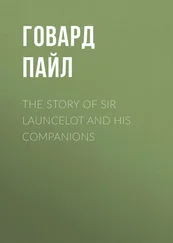Jean Plaidy - Murder Most Royal - The Story of Anne Boleyn and Catherine Howard
Здесь есть возможность читать онлайн «Jean Plaidy - Murder Most Royal - The Story of Anne Boleyn and Catherine Howard» весь текст электронной книги совершенно бесплатно (целиком полную версию без сокращений). В некоторых случаях можно слушать аудио, скачать через торрент в формате fb2 и присутствует краткое содержание. Жанр: Старинная литература, на русском языке. Описание произведения, (предисловие) а так же отзывы посетителей доступны на портале библиотеки ЛибКат.
- Название:Murder Most Royal: The Story of Anne Boleyn and Catherine Howard
- Автор:
- Жанр:
- Год:неизвестен
- ISBN:нет данных
- Рейтинг книги:3 / 5. Голосов: 1
-
Избранное:Добавить в избранное
- Отзывы:
-
Ваша оценка:
- 60
- 1
- 2
- 3
- 4
- 5
Murder Most Royal: The Story of Anne Boleyn and Catherine Howard: краткое содержание, описание и аннотация
Предлагаем к чтению аннотацию, описание, краткое содержание или предисловие (зависит от того, что написал сам автор книги «Murder Most Royal: The Story of Anne Boleyn and Catherine Howard»). Если вы не нашли необходимую информацию о книге — напишите в комментариях, мы постараемся отыскать её.
Murder Most Royal: The Story of Anne Boleyn and Catherine Howard — читать онлайн бесплатно полную книгу (весь текст) целиком
Ниже представлен текст книги, разбитый по страницам. Система сохранения места последней прочитанной страницы, позволяет с удобством читать онлайн бесплатно книгу «Murder Most Royal: The Story of Anne Boleyn and Catherine Howard», без необходимости каждый раз заново искать на чём Вы остановились. Поставьте закладку, и сможете в любой момент перейти на страницу, на которой закончили чтение.
Интервал:
Закладка:
She opened her eyes, stared at the couch in feigned surprise, tried to simulate fear; which made him slap his thigh with mirth. They all wanted to be forced...every one of them. Well, let them; it was a feminine trait that didn’t displease him. She murmured: “If it please Your Grace, I am late and...”
“It does please Our Grace. It pleases us mightily. Come hither to me, little Mary. I would know if the rest of you tastes as sweet as your lips.”
She was laughing and eager, no longer feigning feminine modesty when she could not be anything but natural. The King was amused and delighted; not since he had set foot on this hated soil had he been so delighted.
He laughed and was refreshed and eased of his humiliation. He’d take this girl the English way—no French fripperies for him! He would say what he meant, and she could too.
He said: “Why, Mary, you’re sweet all over. And where did you hide yourself, Mary? I’m not sure you have not earned a punishment, Mary, for keeping this from your King so long; we might say it was treason, that we might!”
He laughed, mightily pleased, as he always was, with his own pleasantries; and she was overawed and passive, then responsive and pretending to be afraid she had been over-presumptuous to have so enjoyed the King. This was what he wanted, and he was grateful enough to those of his subjects who pleased him. In an exuberance of good spirits he slapped her buttocks—no velvet to cover them now—and she laughed, and her saucy eyes promised much for other times to come.
“You please me, Mary,” he said, and in a rush of crude tenderness added: “You shall not suffer for this day.”
When he left her and when she was scrambling into her clothes, she still trembled from the violence of the experience.
In the Queen’s apartment she was scolded for her lateness; demurely, with eyes cast down, she accepted the reprimand.
Coming from Mary Boleyn, the King met the Cardinal.
Ah, thought the Cardinal, noting the flushed face of his royal master, and guessing something of what had happened, who now?
The King laid his hand on the Cardinal’s shoulder, and they walked together along the corridor, talking of the entertainment they would give the French tonight, for matters of state could not be discussed in the palace of Guisnes; these affairs must wait for Greenwich or York House; impossible to talk of important matters, surrounded by enemies.
This exuberance, thought the Cardinal, means one thing—success in sport. And as sport the Cardinal would include the gratification of the royal senses. Good! said the Cardinal to himself; this has put that disastrous matter of the wrestling from his thoughts.
The Cardinal was on the whole a contented man—as contented, that is, as a man of ambition can ever be. He was proud of his sumptuous houses, his rich possessions; it was a good deal to be, next to the King, the richest man in England. But that which he loved more than riches, he also had; and to those who have known obscurity, power is a more intoxicating draught than riches. Men might secretly call him “Butcher’s cur,” but they trembled before his might, for he was greater than the King. He led the King, and if he managed this only because the King did not know he was led, that was of little account. Very pleasant it was to reflect that his genius for statecraft, his diplomacy, had put the kingdom into the exalted position it held today. This King was a good king, because the goodness of a king depends upon his choice of ministers. There could be no doubt that Henry was a good king, for he had chosen Thomas Wolsey.
It pleased the statesman therefore to see the King happy with a woman, doubtless about to launch himself on yet another absorbing love affair, for then the fat, bejeweled hands, occupied in caressing a woman’s body, could be kept from seeking a place on the helm of the ship of state. The King must be amused; the King must be humored; when he would organize this most ridiculous pageant, this greatest farce in history, there was none that dare deny him his pleasures. Buckingham, the fool, had tried; and Buckingham should tread carefully, for, being so closely related to the King, his head was scarcely safe on his shoulders, be he the most docile of subjects. Francis was not to be trusted. He would make treaties one week, and discard them the next. But how could one snatch the helm from those podgy hands, once the King had decided they must have a place on it? How indeed! Diplomacy forever! thought the Cardinal. Keep the King amused. It was good to see the King finding pleasure in a woman, for well the Cardinal knew that Elizabeth Blount, who had served her purpose most excellently, was beginning to tire His Majesty.
They parted affectionately at the King’s apartments, both smiling, well pleased with life and with each other.
The Queen was retiring. She had dismissed her women when the King came in. Her still beautiful auburn hair hung about her shoulders; her face was pale, thin and much lined, and there were deep shadows under her eyes.
The King looked at her distastefully. With Mary Boleyn still in his thoughts, he recalled the cold submissiveness to duty of this Spanish woman through the years of their marriage. She had been a good wife, people would say; but she would have been as good a wife to his brother Arthur had he lived. Being a good wife was just another of the virtues that irritated him. And what had his marriage with her been but years of hope that never brought him his desires? The Queen is with child; prepare to sing a Te Deum. Prepare to let the bells of London ring. And then...miscarriage after miscarriage; five of them in four years. A stillborn daughter, a son who lived but two months, a stillborn son, one who died at birth and another prematurely born. And then...a daughter!
He had begun to be afraid. Rumors spread quickly through a country, and it is not always possible to prevent their reaching the kingly ear. Why cannot the King have a son? murmured his people. The King grew fearful. I am a very religious man, he thought. The fault cannot be mine. Six times I hear mass each day, and in times of pestilence or war or bad harvest, eight times a day. I confess my sins with regularity; the fault cannot be mine.
But he was superstitious. He had married his brother’s widow. It had been sworn that the marriage had never been consummated. Had it though? The fault could not be his. How could God deny the dearest wish of such a religious man as Henry VIII of England! The King looked round for a scapegoat, and because her body was shapeless with much fruitless child-bearing, and because he never had liked her pious Spanish ways for more than a week or two, because he was beginning to dislike her heartily, he blamed the Queen. Resentfully he thought of those nights when he had lain with her. When he prayed for male issue he reminded his God of this. There were women in his court who had beckoned him with their charms, who had aroused his ready desire; and for duty’s sake he had lain with the Queen, and only during her pregnancies had he gone where he would. What virtue...to go unrewarded! God was just; therefore there was some reason why he had been denied a son. There it was...in that woman on whom he had squandered his manhood without reward.
He knew, when Elizabeth Blount bore his son, that the fault could not lie with him. He had been in an ecstacy of delight when that boy had been born. His virility vindicated, the guilt of Katharine assured, his dislike had become tinged with hatred on that day.
But on this evening his dislike for the Queen was mellowed by the pleasure he had had in Mary Boleyn; he smiled that remote smile which long experience had taught the Queen was born of satisfied lust. His gorgeous clothing was just a little disarranged; the veins stood out more than usual on the great forehead.
Читать дальшеИнтервал:
Закладка:
Похожие книги на «Murder Most Royal: The Story of Anne Boleyn and Catherine Howard»
Представляем Вашему вниманию похожие книги на «Murder Most Royal: The Story of Anne Boleyn and Catherine Howard» списком для выбора. Мы отобрали схожую по названию и смыслу литературу в надежде предоставить читателям больше вариантов отыскать новые, интересные, ещё непрочитанные произведения.
Обсуждение, отзывы о книге «Murder Most Royal: The Story of Anne Boleyn and Catherine Howard» и просто собственные мнения читателей. Оставьте ваши комментарии, напишите, что Вы думаете о произведении, его смысле или главных героях. Укажите что конкретно понравилось, а что нет, и почему Вы так считаете.












